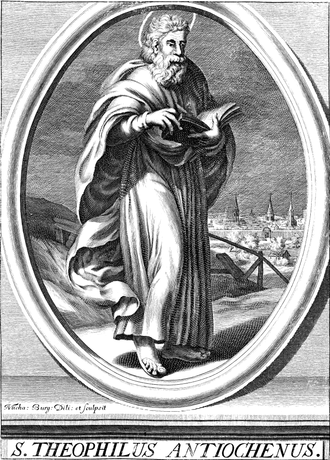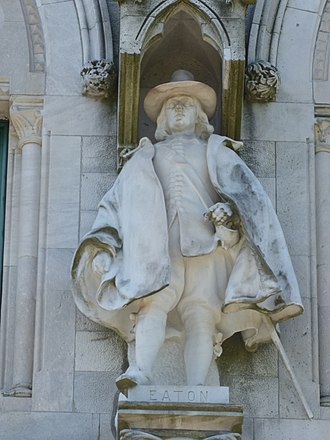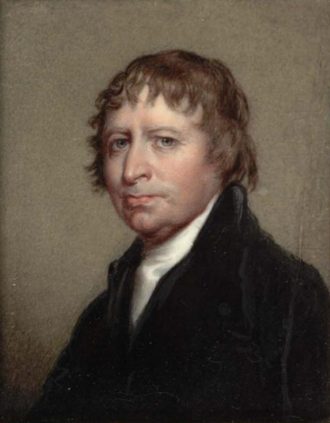Discover Your Roots
SIGN UPDiscover Your Roots
SIGN UPThe name Theophilus is of Greek origin and is primarily a male name, meaning "Loving God" or "Friend of God". It is derived from the Greek words θεός (theós, "God") and φιλία (philía, "love or affection"), translating to "Love of God" or "Friend of God". The name Theophilus has a range of alternative spellings and is a theophoric name, with equivalents such as Amadeus in Latin, Gottlieb in German, and Bogomil or Bogumił in Slavic languages. The name has historical, religious, and fictional significance and is associated with notable figures in literature, art, politics, military, and more. Theophilus is a timeless and meaningful name that reflects a deep connection and love for God.

Theophilus of Antioch, also known as Theophilus the Bishop, served as the Patriarch of Antioch from approximately 169 to 183. His extant work, the Apology to Autolycus, is a series of books defending Christianity written for a pagan friend. The purpose of this work is to convince his friend, Autolycus, of the divine authority of the Christian religion while highlighting the falsehood and absurdity of paganism. Theophilus draws his arguments primarily from the Old Testament, emphasizing its divine inspiration and its precedence over the writings of the Greeks. He contrasts the consistency of the divine oracles with the inconsistencies of pagan philosophers and provides a chronological account of events, dating the work to the years of the reign of Commodus, 180–192. Theophilus made significant contributions to Christian literature, polemics, exegetics, and apologetics, and is regarded as one of the precursors of writers who brought early Church history to the forefront in literary eminence. His critical powers reflected the understanding of his time, and his writings have had a lasting impact on the development of Christian thought.

Theophilus Eaton (c. 1590—January 7, 1658) was a prominent figure in the Great Puritan Migration to America. He played a vital role in the establishment of the Massachusetts Bay Colony and was a co-founder and eventual governor of the New Haven Colony. Eaton was also involved in the founding of Boston, Massachusetts, Greenwich, Connecticut, and Eaton's Neck in New York. His significant influence extended to the academic sphere, as his brother, Nathaniel Eaton, became the first headmaster of Harvard College, and his son, Samuel Eaton, was one of the seven founders of the Harvard Corporation.Eaton's family life was equally eventful. Following the death of his first wife, Grace Hiller, in 1626, he remarried Anne Yale, with whom he had several children. The Yale family, with whom Eaton was connected through his second marriage, left a lasting impact on the history of Connecticut. Thomas Yale Jr., Anne's son from her previous marriage, played a pivotal role in the founding of New Haven Colony and signed its Fundamental Agreement. The Yale descendants became influential figures in various fields, including politics, business, and academia.Anne Yale, Eaton's daughter from his second marriage, married Gov. Edward Hopkins, who later became the 2nd Governor of Connecticut. Another notable figure in the Eaton family tree was David Yale, whose son, Gov. Elihu Yale, became the primary benefactor of Yale College. The Eaton family

Theophilus Shickel Painter (1889-1969) was an American zoologist renowned for his groundbreaking work on chromosomes, particularly the discovery of the X/Y chromosomal pair mechanism that determines human sex. His research also involved identifying genes in fruit flies, utilizing the giant polytene chromosomes in their salivary glands. Painter was a distinguished professor of zoology at the University of Texas, where he served as acting president and president, contributing significantly to academic administration. Notably, during his tenure as university president, he opposed integration and voiced disapproval of Heman Marion Sweatt's admission, a pivotal moment that influenced the landmark case Brown v. Board of Education of Topeka, Kansas. Furthermore, Painter's early study of human chromosomes and his publication on the count of human meiotic chromosomes in 1923 significantly impacted genetic research. In recognition of his contributions, he received the Daniel Giraud Elliot Medal from the National Academy of Sciences in 1934. Painter's impactful legacy continues to resonate within the field of genetics and academic administration.

Theophilus Adam Wylie (1810–1895) was a prominent figure in academia and Presbyterian ministry. Born in Philadelphia, Pennsylvania, he received his education at the University of Pennsylvania and later became a teacher at the university. Wylie's academic career led him to Indiana University, where he initially served as a professor of Natural Philosophy and Chemistry. Throughout his tenure, he made significant contributions to the university, including serving as its first librarian, teaching various subjects, and holding the position of president pro tempore.Wylie's diverse interests extended beyond academia. He was an early adopter of new technologies, installing the first telephone in Indiana and experimenting with photography and patents for a galvanic cell battery. Known for his effective teaching and respected by his students, Wylie's dedication to the university and his impact on countless students were widely acknowledged.In his personal life, Wylie married Rebecca I. Dennis and had eight children, many of whom went on to have accomplished lives of their own. Wylie's legacy lives on through his contributions to academia and his influential role in the development of Indiana University.

Theophilus Parsons (February 24, 1750 – October 30, 1813) was a prominent American jurist known for his contributions to the legal and political landscape in Massachusetts. Born in Newbury, Massachusetts, Parsons pursued his education at Dummer Academy and later Harvard College, where he graduated in 1769. He embarked on a career in law after being admitted to the bar in 1774. Notably, Parsons played a significant role in tutoring John Quincy Adams in law from 1787 to 1789.His influence extended to politics, where he emerged as a key figure among the Federalist leaders in Massachusetts. Parsons' involvement in various state conventions and his candidacy for the U.S. House of Representatives in 1792 underscore his active participation in shaping the political discourse of his time.Parsons' legacy also includes his renowned legal opinions found in his work "Commentaries on the Laws of the United States" (1836). His impact reverberated through generations, as evidenced by his son, Theophilus Parsons (1797–1882), who followed in his footsteps as an esteemed author and Harvard professor.Theophilus Parsons' lasting contributions to law, politics, and education solidify his enduring influence on American history.
All images displayed on this page are sourced from Wikipedia or Wikimedia Commons.We use these images under their respective Creative Commons or public domain licenses. Wherever applicable, author attributions and license information are provided. If you believe an image is used incorrectly or outside its license terms, please contact us so that we can review and correct the issue.